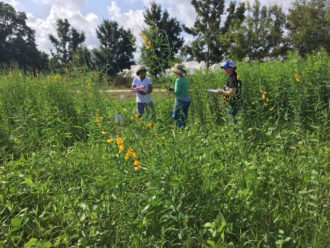GRIFFIN, Georgia – The Southern Sustainable Agriculture Research and Education (SSARE) program has released the 2023 Call for Proposals for Graduate Student Grants.
Southern SARE Graduate Student Grants are open to Master’s and PhD students, enrolled at accredited institutions across the Southern region, who are interested in exploring areas of sustainable agriculture through quantitative and qualitative research projects.
Proposal submission deadline is May 12, 2023 at 12 p.m. (noon) EST. Download the Call for Proposals and carefully read the proposal application instructions. All of the guidelines, program goals, review criteria, and the submission process to apply for a Southern SARE Graduate Student Grant can be found within the Call for Proposals.
Southern SARE Graduate Student Grants are very competitive. To be considered for funding, proposals must demonstrate a direct relationship between the approach and methods used in the project and the relevance to sustainable agriculture. Research projects must cover issues related to improving the profitability of farmers/ranchers in the Southern region; sustaining and improving the environmental quality and natural resources base on which agriculture depends; or enhancing the quality of life for farmers and ranchers and the communities they support.
Maximum funds awarded are $16,500 for a two-year project. Grant awards are announced in August with the project start date of funded projects beginning September 1.
Visit the Southern SARE website for more information on sustainable agriculture and other grant funding opportunities.
--30—
Published by the Southern Region of the Sustainable Agriculture Research and Education (SARE) program. Funded by the USDA National Institute of Food and Agriculture (NIFA), Southern SARE operates under cooperative agreements with the University of Georgia, Fort Valley State University, and the Kerr Center for Sustainable Agriculture to offer competitive grants to advance sustainable agriculture in America's Southern region. Any opinions, findings, conclusions, or recommendations expressed in this publication are those of the author(s) and do not necessarily reflect the view of the U.S. Department of Agriculture.
